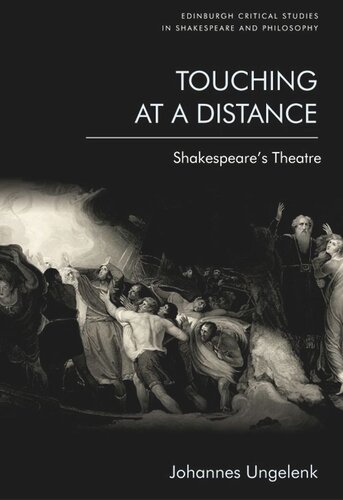

Most ebook files are in PDF format, so you can easily read them using various software such as Foxit Reader or directly on the Google Chrome browser.
Some ebook files are released by publishers in other formats such as .awz, .mobi, .epub, .fb2, etc. You may need to install specific software to read these formats on mobile/PC, such as Calibre.
Please read the tutorial at this link: https://ebookbell.com/faq
We offer FREE conversion to the popular formats you request; however, this may take some time. Therefore, right after payment, please email us, and we will try to provide the service as quickly as possible.
For some exceptional file formats or broken links (if any), please refrain from opening any disputes. Instead, email us first, and we will try to assist within a maximum of 6 hours.
EbookBell Team

0.0
0 reviewsTheatre has a remarkable capacity: it touches from a distance. The audience is affected, despite their physical separation from the stage. The spectators are moved, even though the fictional world presented to them will never come into direct touch with their real lives. Shakespeare is clearly one of the master practitioners of theatrical touch. As the study shows, his exceptional dramaturgic talent is intrinsically connected with being one of the great thinkers of touch. His plays fathom the complexity and power of a fascinating notion – touch as a productive proximity that is characterised by unbridgeable distance – which philosophers like Friedrich Nietzsche, Maurice Blanchot, Jacques Derrida, Luce Irigaray and Jean-Luc Nancy have written about, centuries later.
By playing with touch and its metatheatrical implications, Shakespeare raises questions that make his theatrical art point towards modernity: how are communities to form when traditional institutions begin to crumble? What happens to selfhood when time speeds up, when oneness and timeless truth can no longer serve as reliable foundations? What is the role and the capacity of language in a world that has lost its seemingly unshakeable belief and trust in meaning? How are we to conceive of the unthinkable extremes of human existence – birth and death – when the religious orthodoxy slowly ceases to give satisfactory explanations? Shakespeare’s theatre not only prompts these questions, but provides us with answers. They are all related to touch, and they are all theatrical at their core: they are argued and performed by the striking experience of theatre’s capacities to touch – at a distance.